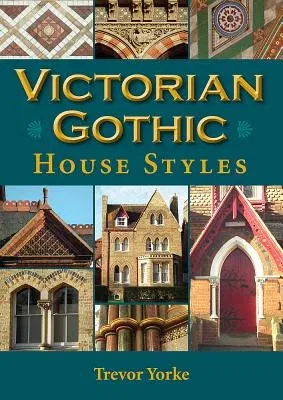Trevor Yorke
(Author)Victorian Gothic House StylesPaperback, 15 December 2012

Qty
1
Turbo
Ships in 2 - 3 days
Only 2 left
Free Delivery
Cash on Delivery
15 Days
Free Returns
Secure Checkout

Part of Series
Britain's Living History
Print Length
80 pages
Language
English
Publisher
Countryside Books (GB)
Date Published
15 Dec 2012
ISBN-10
1846743044
ISBN-13
9781846743047
Description
Product Details
Author:
Book Format:
Paperback
Country of Origin:
GB
Date Published:
15 December 2012
Dimensions:
20.57 x
14.73 x
0.76 cm
ISBN-10:
1846743044
ISBN-13:
9781846743047
Language:
English
Location:
Newbury
Pages:
80
Publisher:
Series:
Weight:
181.44 gm